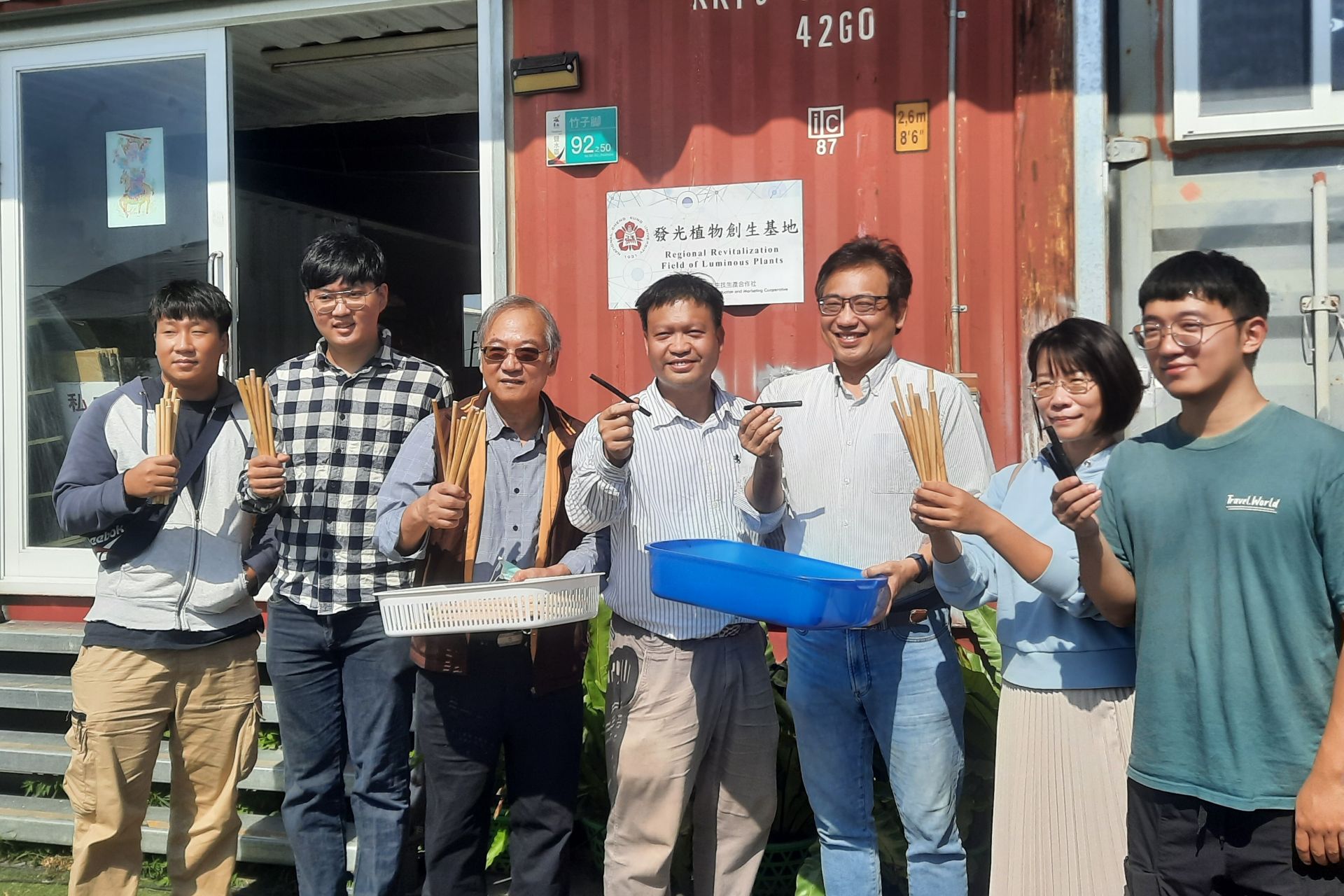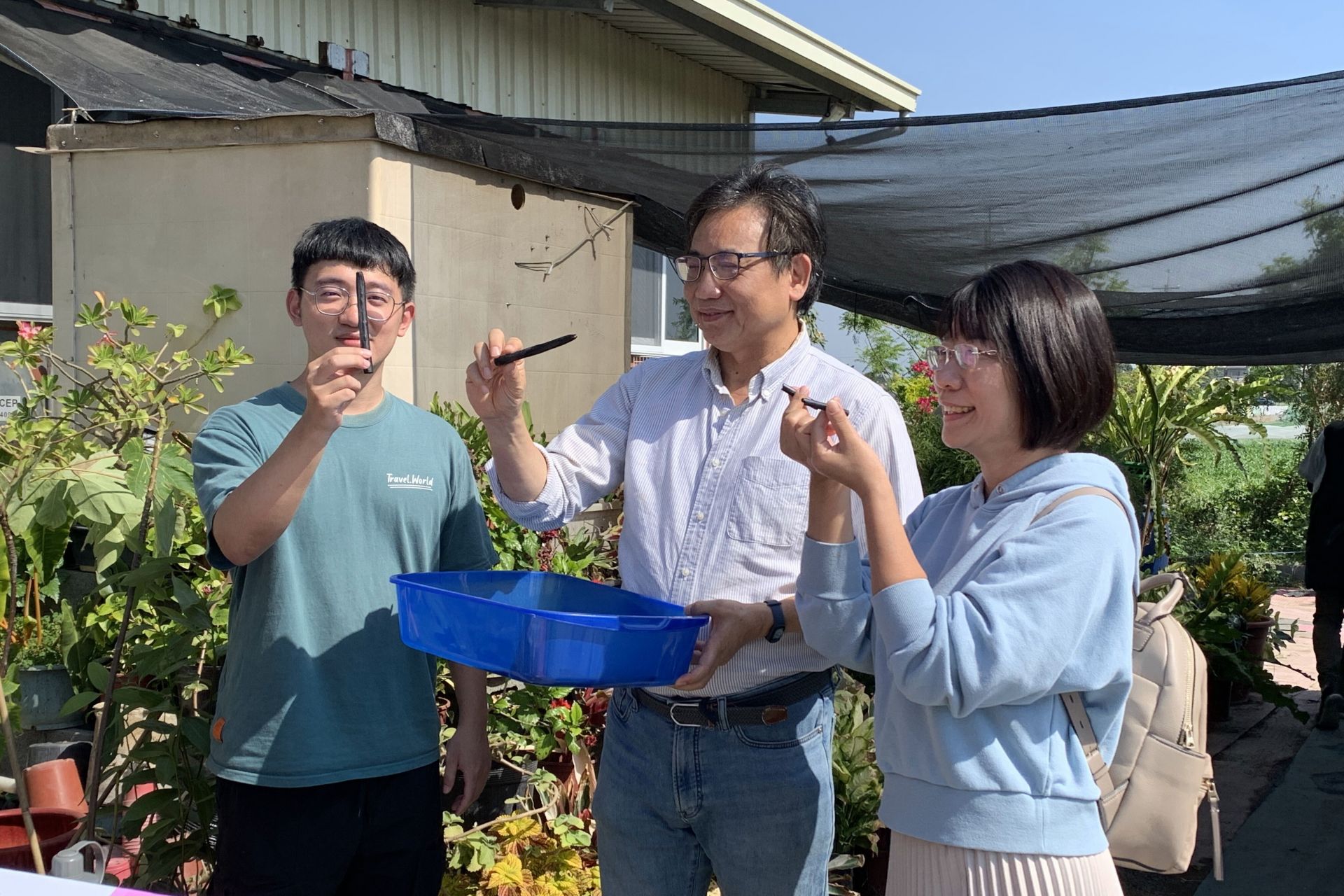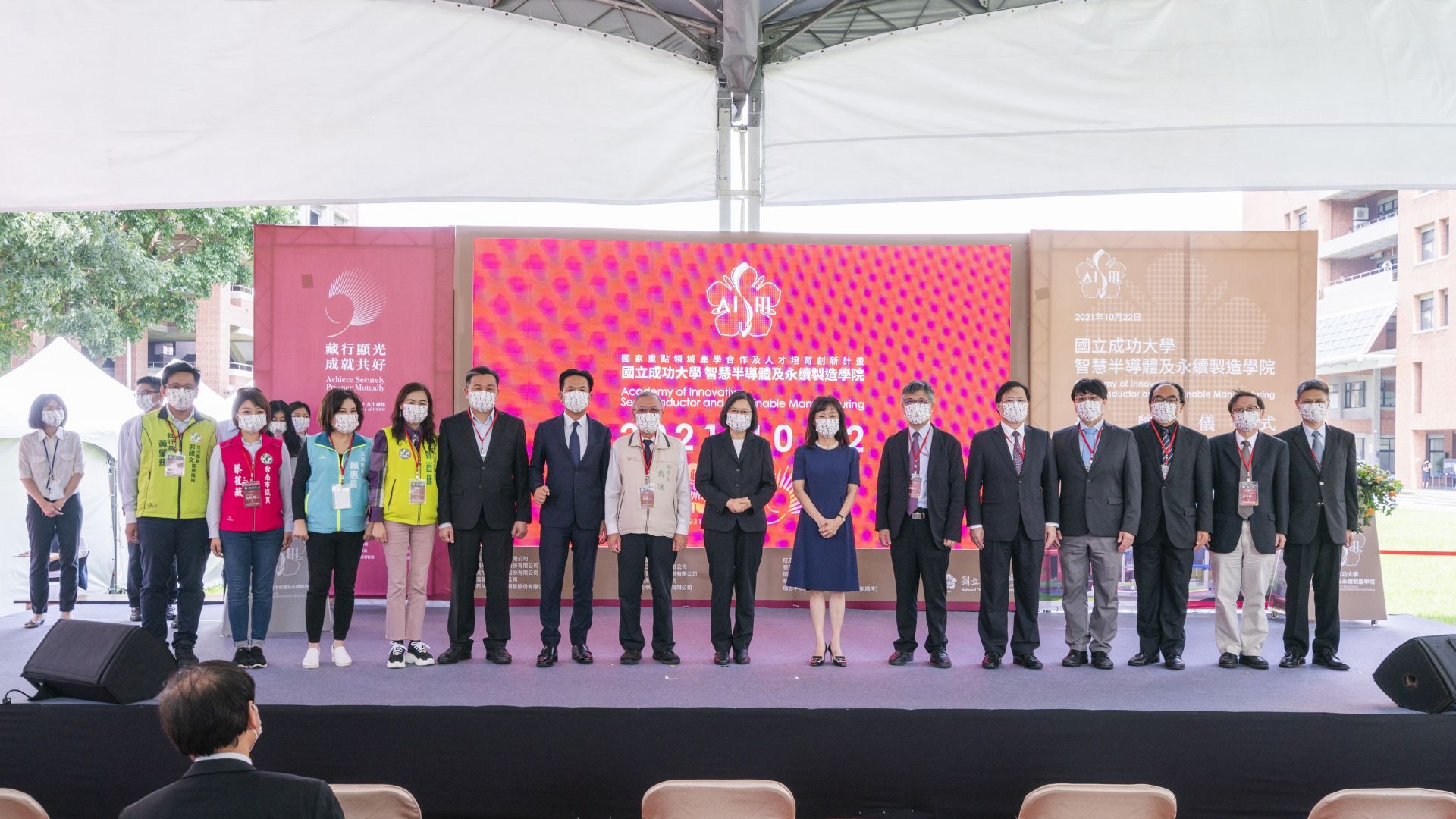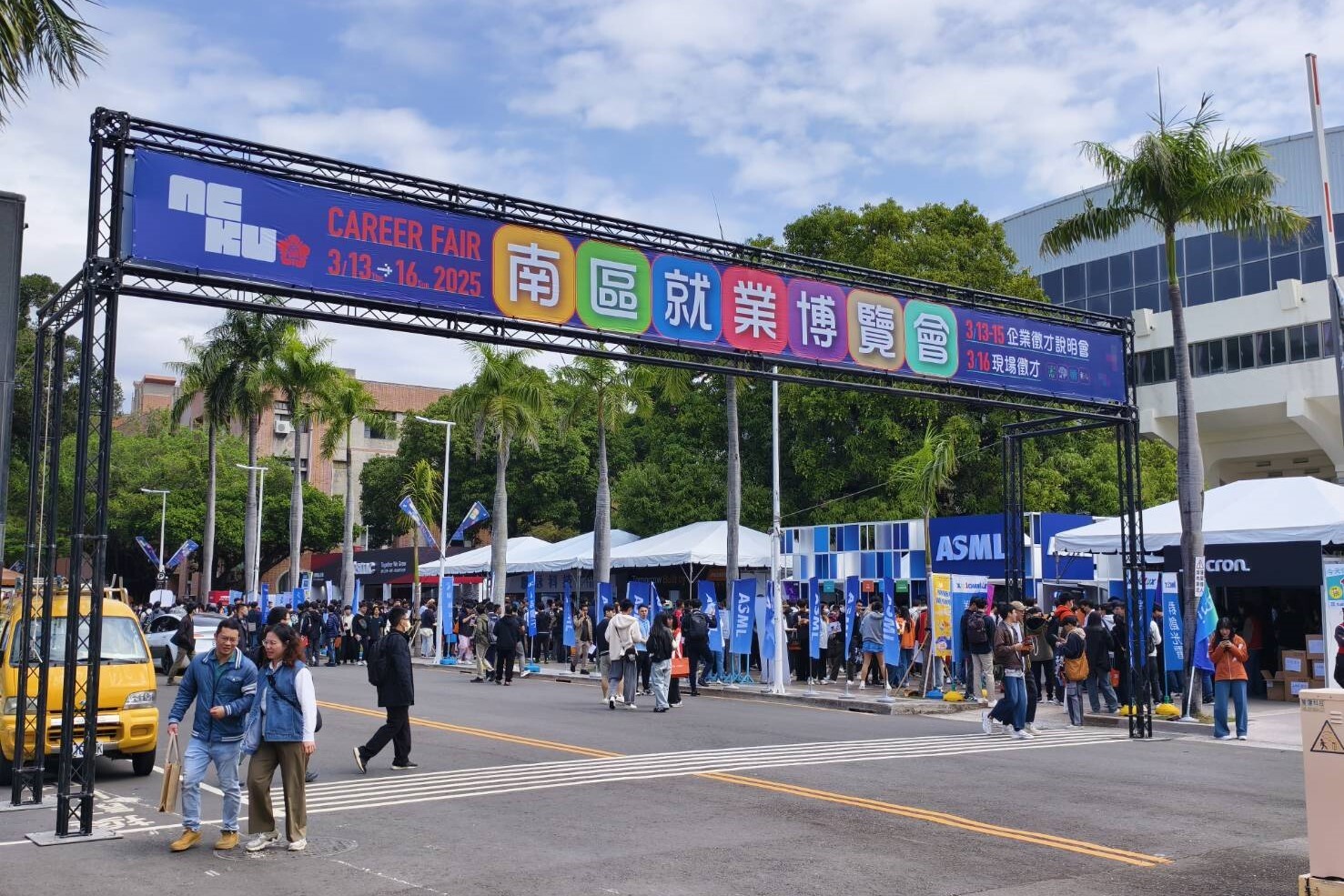SDG8
NCKU leverages new agricultural technology to promote local revitalization through sorghum biochar in the Jiannan Plain
Text/Material Department, Meng Qingci
Illustration/Material Department Zhang Yaoyuan
The Department of Materials Science at NCKU and the Department of Bio-Industry Communication and Development at NTU have combined local efforts to create a new agricultural biotechnology production cooperative in Tainan. They have invested in the development of sorghum stalks, a characteristic crop in the dry land of the Chianan Plain, to prepare biochar. They recently held a ceremony in Zhupu Community, Yanshui District, Tainan City. Posted by De Coleus Greenhouse. It is hoped that through the efforts of the academic community through new agricultural technologies and local industrial innovation, we can promote and achieve harmony between humans and nature.
This project is part of the "Agricultural and Rural Development and Soil and Water Conservation Bureau of the Ministry of Agriculture's Sponsored and Guided University Rural Practice Co-creation Program." It is led by Professor Su Yen-Hsun from the Department of Materials Science at NCKU, along with Associate Professor Chen Wei-Sheng from the Department of Resources Engineering at NCKU, Associate Professor Wang Shu-Mei from the Department of Bio-industry Communication and Development at National Taiwan University, and the team led by Dr. Yen Chen-Piao from the Tainan Agricultural Biotechnology Production Cooperative.
Biochar has excellent adsorption capabilities, allowing it to sequester carbon dioxide. When stored in the soil, it promotes soil health. Professor Su Yen-Hsun mentioned that according to the United Nations Framework Convention on Climate Change (UNFCCC-COP) and its recent "Four Per Mille Initiative," if we annually increase the carbon accumulation in the top 40 centimeters of soil by four per thousand, it can balance the yearly increase of carbon dioxide in the atmosphere due to human activities. This not only enhances soil health and agricultural yields but also contributes to achieving the distant goal of keeping global average temperature rise below 1.5 to 2 degrees Celsius.
Associate Professor Wang Shu-Mei stated that starting from the cultivation of crops as the primary industry, progressing to the processing of agricultural products as the secondary industry, and finally engaging in the sale of agricultural and processed products as the tertiary industry, all contribute to local revitalization. In response to global climate change, the development of sorghum biochar from the drought-prone areas of the Jiannan Plain not only showcases local characteristics but also aligns with international trends.
Dr. Yen Chen-Piao expressed that by combining new agricultural technology with local specialties for revitalization, they are addressing global environmental changes. The development of sorghum biochar from the drought-prone areas of the Jiannan Plain aims to control resource usage within the limits of environmental carrying capacity and resilience, promoting the cyclical use of natural resources. Integrating traditional knowledge with modern technology seeks to establish a new form of collaborative management system, contributing to local socio-economic growth and realizing the vision of harmonious coexistence between human society and nature, as advocated in the "Liyuan Initiative."
Professor Su Yen-Hsun's team has found that the current biochar production yields are 20-30% higher under the developed conditions compared to general oxygen-limited conditions. The produced biochar has a high specific surface area, effectively reducing agricultural waste and minimizing carbon loss during the pyrolysis process. It also enhances the carbon permanence in the soil and promotes biomass improvement in crop growth. Taiwan's agriculture was among the earliest to join the "Four Per Mille Initiative Alliance." Although achieving the four per thousand carbon sequestration goal annually is challenging for Taiwan due to its subtropical climate, efforts are being intensified to promote the supply and application management of biochar. The development of biochar from the locally characteristic sorghum in the drought-prone areas of the Jiannan Plain is establishing a biochar demonstration base, combining new agricultural technology to achieve the goal of regional sustainable agricultural development.
Illustration/Material Department Zhang Yaoyuan
The Department of Materials Science at NCKU and the Department of Bio-Industry Communication and Development at NTU have combined local efforts to create a new agricultural biotechnology production cooperative in Tainan. They have invested in the development of sorghum stalks, a characteristic crop in the dry land of the Chianan Plain, to prepare biochar. They recently held a ceremony in Zhupu Community, Yanshui District, Tainan City. Posted by De Coleus Greenhouse. It is hoped that through the efforts of the academic community through new agricultural technologies and local industrial innovation, we can promote and achieve harmony between humans and nature.
This project is part of the "Agricultural and Rural Development and Soil and Water Conservation Bureau of the Ministry of Agriculture's Sponsored and Guided University Rural Practice Co-creation Program." It is led by Professor Su Yen-Hsun from the Department of Materials Science at NCKU, along with Associate Professor Chen Wei-Sheng from the Department of Resources Engineering at NCKU, Associate Professor Wang Shu-Mei from the Department of Bio-industry Communication and Development at National Taiwan University, and the team led by Dr. Yen Chen-Piao from the Tainan Agricultural Biotechnology Production Cooperative.
Biochar has excellent adsorption capabilities, allowing it to sequester carbon dioxide. When stored in the soil, it promotes soil health. Professor Su Yen-Hsun mentioned that according to the United Nations Framework Convention on Climate Change (UNFCCC-COP) and its recent "Four Per Mille Initiative," if we annually increase the carbon accumulation in the top 40 centimeters of soil by four per thousand, it can balance the yearly increase of carbon dioxide in the atmosphere due to human activities. This not only enhances soil health and agricultural yields but also contributes to achieving the distant goal of keeping global average temperature rise below 1.5 to 2 degrees Celsius.
Associate Professor Wang Shu-Mei stated that starting from the cultivation of crops as the primary industry, progressing to the processing of agricultural products as the secondary industry, and finally engaging in the sale of agricultural and processed products as the tertiary industry, all contribute to local revitalization. In response to global climate change, the development of sorghum biochar from the drought-prone areas of the Jiannan Plain not only showcases local characteristics but also aligns with international trends.
Dr. Yen Chen-Piao expressed that by combining new agricultural technology with local specialties for revitalization, they are addressing global environmental changes. The development of sorghum biochar from the drought-prone areas of the Jiannan Plain aims to control resource usage within the limits of environmental carrying capacity and resilience, promoting the cyclical use of natural resources. Integrating traditional knowledge with modern technology seeks to establish a new form of collaborative management system, contributing to local socio-economic growth and realizing the vision of harmonious coexistence between human society and nature, as advocated in the "Liyuan Initiative."
Professor Su Yen-Hsun's team has found that the current biochar production yields are 20-30% higher under the developed conditions compared to general oxygen-limited conditions. The produced biochar has a high specific surface area, effectively reducing agricultural waste and minimizing carbon loss during the pyrolysis process. It also enhances the carbon permanence in the soil and promotes biomass improvement in crop growth. Taiwan's agriculture was among the earliest to join the "Four Per Mille Initiative Alliance." Although achieving the four per thousand carbon sequestration goal annually is challenging for Taiwan due to its subtropical climate, efforts are being intensified to promote the supply and application management of biochar. The development of biochar from the locally characteristic sorghum in the drought-prone areas of the Jiannan Plain is establishing a biochar demonstration base, combining new agricultural technology to achieve the goal of regional sustainable agricultural development.

The local revitalization team showcased sorghum stalks and their biochar.

Increment of biochar from local specialty crop sorghum.






















